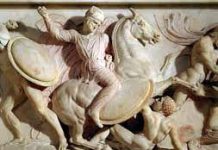Mood in Literature
Mood in Literature
Mood in Literature
Introduction:
In literature, mood refers to the emotional atmosphere or ambiance that a writer creates within a work. It is the overall feeling or tone that permeates the narrative and influences the reader’s emotional response. Mood is crafted through a combination of various literary elements, such as setting, tone, diction, and imagery.
Mood Definition in Literature:
Mood is the emotional quality or atmosphere that a literary work conveys to its audience. It goes beyond the specific emotions experienced by characters and extends to the emotional experience evoked in the reader. Mood sets the stage for the narrative, shaping the reader’s perception and enhancing the overall impact of the story.
Key Aspects of Mood:
Setting: The setting of a story significantly contributes to its mood. Descriptions of time and place, along with details like weather and environment, can create a specific emotional backdrop.
Tone: The tone, or the author’s attitude toward the subject matter, characters, or audience, plays a crucial role in establishing mood. Tone can be serious, humorous, ominous, or nostalgic, among other possibilities.
Imagery and Descriptive Language: The use of vivid imagery and descriptive language can evoke certain emotions, contributing to the overall mood of a piece. Writers employ sensory details to immerse readers in the emotional landscape.
Character Emotions: The emotions experienced by characters can influence the mood of a story. Joy, fear, sadness, or excitement expressed by characters contribute to the emotional atmosphere.
Examples of Mood in Literature:
Gothic Mood in “Wuthering Heights” by Emily Brontë: The eerie and foreboding setting of the moors, coupled with dark and tumultuous relationships, creates a Gothic mood in Brontë’s novel.
Joyful Mood in “Pride and Prejudice” by Jane Austen: Austen’s use of witty dialogue, humor, and romantic elements contributes to a joyful and light-hearted mood in this classic novel.
Ominous Mood in “Macbeth” by William Shakespeare: The supernatural elements, coupled with themes of ambition and betrayal, create a dark and ominous mood throughout Shakespeare’s tragedy.
Isolation and Despair in “The Metamorphosis” by Franz Kafka: The existential and isolated mood is pervasive in Kafka’s work, as the protagonist, Gregor Samsa, undergoes a bizarre transformation, leading to a sense of despair.
Impact of Mood:
Reader Engagement: Mood enhances reader engagement by eliciting emotional responses, making the narrative more immersive and memorable.
Atmospheric Setting: Mood contributes to the creation of an atmospheric setting, transporting readers into the emotional landscape of the story.
Theme Reinforcement: The mood often aligns with and reinforces the themes of a literary work, providing a nuanced layer to the exploration of ideas.
In summary, mood in literature is a dynamic element that shapes the emotional experience for readers, influencing their interpretation of the narrative and adding depth to the overall impact of a work. 0 0 0.
Mood in Literature
Some More Queries for Ready Reference:
- Prose in Literature
- Foreshadowing Definition Literature
- Literature Review Outline
- Literature Review Sample
- Pathos Definition Literature
- How to Write a Literature Review
- How to Read Literature Like a Professor
- Theme Definition Literature
- Adult Content in Literature
- Erotic Literature
- Exposition Definition Literature
- Theme in Literature
- Literature Definition
- Logos Definition Literature
- Doki Doki Literature Club Characters
- Yuri Doki Doki Literature Club
- What are 2 Main Genres of Literature?
- What are the 4 Major Parts of Literature?
- What are the 2 major Types of Literature?
- What are the 3 Types of Literature?
- What is 5 definitions of literature?
- What is Literature in 150 Words
- What is a Literary Short Answer?
- What is the definition of literature?











